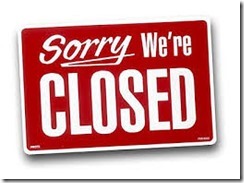Small and medium-size businesses are most likely to fail because of an inability to manage costs or anticipate rising costs, according to a survey of more than 1000 Australian owners of SMEs.
The survey, published yesterday by accounting software provider CCH and global information services group Wolters Kluwer, revealed SMEs see inexperienced management, a bad business model and lack of access to capital as other key reasons for small business failure.
Of those surveyed, 61% of SME operators said small businesses failed because of an inability to manage costs, 50% said inexperienced management, 50% said poorly designed business models or no business plan, 49% said insufficient capital, 37% said poor or insufficient marketing, and 35% said insufficient time managing the books.
Respondents were able to pick multiple reasons for failure and only 26% identified failure to seek professional advice as a key reason for failure, while 70% trusted their "gut instinct" over any professional advice.
But the chief executive of Wolters Kluwer Asia-Pacific, Russell Evans, told SmartCompany the majority of SMEs which shun professional advice were doing so possibly at their peril.
Evans points to a separate CCH survey of more than 210 accountants servicing small businesses which ranked bad business models as the main reason SMEs fail.
This view is backed up by ASIC data on 5600 business failures in 2011-12, which cited poor strategic management as the most common cause of failure, attributed to 19% of SME failures, with another 15% of failures attributed to poor financial control.
"It’s a contrast, as if you look at the reasons why an SME owner feels an SME has failed it is inability to manage costs, while the accountants say it is a poorly designed business model," Evans says.
"A lot of SME owners are fixated on their craft and what they do and they tend to chase revenue, they may send out lots of invoices and not understand the cost drivers."
A typical problem for SME owners is buying lots of inventory of the wrong sort of product because they feel revenue means success, according to Evans.
He warns a lot of small businesses are failing to identify they are introducing costs into their businesses which are eroding their margins.
"SME owners are incredibly busy until the day they go broke, but accountants say because they have seen this before they can provide advice not just about revenue drivers but profit drivers," he says.
Evans says the first couple of years of an SME’s operation is often identified by SME owners as a make or break period.
"If that is the make or break period they should be reaching out to professional advisers for more than just doing tax returns," he says.
CCH’s survey found SME owners typically open up to the advice of their accountant as their businesses grow.
SME owners with a higher turnover of $1 million plus were more likely to consider their accountant as their most trusted adviser, not only for transactional accounts but for advice on business growth, than owners of businesses with turnover under $1 million.
Peter Strong, executive director of the Council of Small Business Australia, told SmartCompany relying on gut instinct rather than professional advice is common in small business because it works.
"If you don’t use gut instinct then you become very slow at responding and that is not the nature of small business," he says.
Strong says there are areas for small business where professional advice is needed.
"I wouldn’t employ gut instinct in filling out a form or around financial management and anything to do with cashflow, marketing and long-term planning, we all need assistance with that," he says.
But Strong warns the survey results are problematic as they do not split SMEs by industry.
"It’s a continuing problem of putting all SMEs in the same bucket; if you went to different industry sectors you would find some talk a lot to professional advisers, for example, real estate agents use a lot of professional advice," he says.
Story by Cara Waters, story source: www.smartcompany.com.au
























Leave a Comment